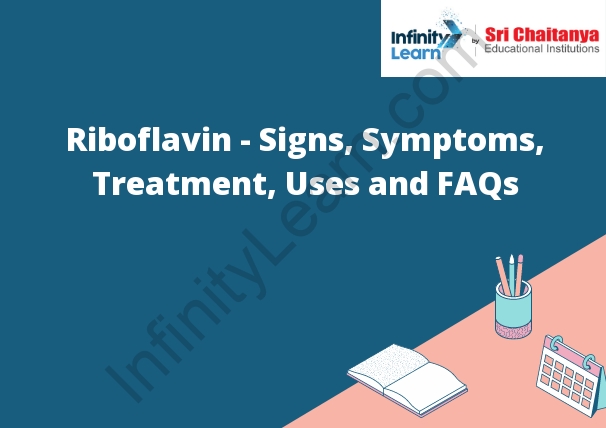Table of Contents
Riboflavin Vitamin
B-2 is a water-soluble vitamin that is found in many foods, including fortified cereals, milk, and some vegetables. It is also available as a dietary supplement.
Riboflavin is used for preventing and treating ariboflavinosis, a condition in which the body does not have enough riboflavin. It is also used for other conditions as determined by your doctor.
Some people use riboflavin for treating migraines, cataracts, and other eye problems; boosting energy; and preventing cancer.

Signs and Symptoms of Cholera
Cholera is a bacterial infection of the small intestine that causes severe watery diarrhea. It can also cause nausea, vomiting, and leg cramps. Cholera is most commonly spread through contaminated food or water. It can also be spread through contact with an infected person’s stool. Symptoms usually develop within a few hours to a few days after exposure to the bacteria. Cholera can be fatal in a high percentage of cases if not treated. Treatment typically involves rehydration with intravenous fluids and antibiotics.
Causes of Stress
One of the most common topics for essays is stress. Stress is a natural response to events that make you feel overwhelmed or threatened. It can be caused by physical or emotional factors. While a little stress is normal and can even be helpful, too much stress can be harmful.
There are many different causes of stress. Some of the most common are:
-Work pressure
-Financial worries
-Family problems
-Health concerns
-Relationship issues
All of these factors can create a lot of tension and anxiety. They can also lead to physical problems, such as headaches, stomachaches, and muscle tension.
The best way to deal with stress is to identify its causes and find ways to address them. If you can’t eliminate the stressful situation, you can learn to manage it better. You can also improve your coping skills and find ways to relax and de-stress. Some helpful strategies include:
-Exercise
-Yoga or meditation
-Deep breathing
-Listening to music
-Spending time with friends or family
-Getting enough sleep
Stress is a part of life, but it’s important to take steps to manage it so that it doesn’t become a problem.
Diagnosis of a herniated disc
When a patient has a herniated disc, the doctor will perform a physical exam and ask about the patient’s symptoms. The doctor may also order imaging tests, such as an X-ray, MRI, or CT scan, to help diagnose the herniated disc.
Treatment of anxiety
Anxiety is a feeling of fear or unease. It is a normal reaction to a stressful event. Anxiety can be helpful because it can make us take action to protect ourselves. However, when anxiety becomes excessive or long-lasting, it can be harmful.
There are many treatments for anxiety. Treatment may include talk therapy, medication, or self-care measures. Treatment depends on the person’s specific needs.
Talk therapy may help people understand and manage their anxiety. Therapists may help people identify and change negative thoughts and behaviours that contribute to anxiety.
Medication may be prescribed to help control the symptoms of anxiety. There are many different types of medication that can be used. Some people only need to take medication for a short time, while others may need to take it for a longer period.
Self-care measures can also be helpful in managing anxiety. These measures may include exercise, relaxation techniques, and healthy eating.
Riboflavin Use
Riboflavin is a water soluble vitamin that is necessary for the body to produce energy from food. It is also necessary for the body to function normally and for the growth and development of the body. Riboflavin is found in dairy products, meat, and eggs.
Side Effects
There are many side effects associated with taking antidepressants. The most common are nausea, vomiting, diarrhea, constipation, weight gain, and sexual problems. Other side effects can include drowsiness, dizziness, headache, insomnia, anxiety, agitation, and fatigue. Some people also experience a discontinuation syndrome when they stop taking antidepressants. This syndrome can cause symptoms such as headache, nausea, vomiting, diarrhea, anxiety, and agitation.
Function
Riboflavin, also known as vitamin B2, is a water soluble vitamin that is essential for human health. It is involved in a wide range of bodily functions, including the metabolism of food, the production of energy, the maintenance of the skin and hair, and the normal functioning of the nervous system. Riboflavin is found in a wide variety of foods, including meat, poultry, fish, dairy products, eggs, legumes, and green vegetables. It is also available as a dietary supplement.
Thiamine Riboflavin
Niacin Pantothenic acid Pyridoxine Thiamine is a water soluble vitamin that is important for the body’s use of energy from food. It is also important for the nervous system. Riboflavin is a water soluble vitamin that is important for the body’s use of energy from food. It is also important for the skin, eyes, and hair. Niacin is a water soluble vitamin that is important for the body’s use of energy from food. It is also important for the nervous system and the skin. Pantothenic acid is a water soluble vitamin that is important for the body’s use of energy from food. Pyridoxine is a water soluble vitamin that is important for the body’s use of energy from food. It is also important for the nervous system and the skin.









